Did you know, cooking food in a defective pot or pan might destroy as much as 50 percent of the dish's nutritious value?
So, it is clear that the material of the cooking tool may have an effect, either positive or negative, on the food being prepared. These are just a few of the many reasons why you need to exercise extreme caution when you buy a cookware.
Therefore, if you want ideal outcomes in the kitchen, you need to invest in high-quality cookware. If we don't have the right cooking utensils, it won't matter if we use fresh ingredients, a tried-and-true recipe, or fragrant spices. Knowing the advantages and disadvantages of each metal will help you select the ideal one for your kitchen. The use of iron and cast-iron cookware is on the rise again. But which one is better for you?
Due to their ability to hold heat and distribute it evenly, iron and cast-iron cookware are widely regarded as the safest options for food preparation. However, between these two, which one is better? Should you opt for cast iron cookware or simply a regular iron cookware?
We should know the difference between iron and cast iron before acquiring a tawa, wok, or pan. It's important to note that the cast iron tawa and iron tawa are not identical, and that these differences might have a significant impact on the final product of our meals.
Table of Contents
What is cast iron cookware?
Cast iron is a byproduct of the smelting process used to create cast iron, which combines iron ore with scrap iron. Carbon, manganese, silicon, sulphur, and phosphorus are all present in cast iron in minute amounts. Cast iron cannot be shaped or bent because of its tenacious hardness.
Cast iron cookware is recommended because it is scientifically proved to release iron into food, a nutrient that is essential for human health. That's not some made-up story! Cast iron's high iron content makes it a good choice for households with iron-deficient individuals like vegetarians, pregnant women, and young children. Cast iron cookware has many benefits, including the fact that it is easy to transport from one location to another and the iron it adds to your food. The fact that it is resilient, long-lasting, and simple to care for is just a bonus. Cooking in cast iron is thought to enhance both the flavour and nutritional value of the dish.
Iron cookware:
Cast iron cookware differs from iron cookware in that it is made by smelting iron with metal alloys. The former, in contrast, consists entirely of iron and no other alloys of any kind. Pure iron is used in the construction of iron cookware, which greatly increases its durability. The natural ingredients give the dish a hearty, homey flavour. In contrast to cast iron, iron cookware may be bent without breaking.
Which of these two options is preferable now? We have compared them briefly to aid your decision-making. These are the primary distinctions between iron and cast iron cookware.
Cooking time:
While preparing a meal that will take a while, cast iron cookware like a cast iron Kadai, cast iron tawa or cast iron pan are ideal. As a result of cast iron's delayed heating process, food is not scorched. The food is instead cooked at a low and steady rate. Iron cookware, such as an iron Kadai, may grow quite hot and can potentially burn food.
Portability
When compared to their cast iron counterparts, iron cooking tools, such iron pans, are considerably heavier. This makes it challenging to move and transport iron kitchenware from one location to another. Cast iron utensils, on the other hand, are lightweight and simple to transport and use. Nonetheless, the weight would be relative to the selected cookware.
Heat tolerance
Iron cookware tends to expand under high heat conditions, making cast iron more durable in the kitchen. Yet, cast iron cookware maintains its shape even when subjected to high temperatures.
Naturally non-stick surface
Naturally non-stick, cast-iron cookware is an excellent choice. With each new round of natural seasoning, they improve. Cast iron cookware, such as a cast iron pan, allows for far less oil to be used in the cooking process than its iron counterpart. Yet iron cookware may grow quite hot, which can cause food to burn. And so, to avoid having to add more oil to keep the food from scorching, you have to. Yet oil, as we all know, makes meals taste much better.
Maintenance
Cleaning iron cookware after use is more of a hassle than cleaning cast iron cookware, but both require a fair amount of maintenance. Burning more efficiently, iron cookware like a grill or Dutch oven leaves a black residue after use. It becomes a huge hassle to clean up after this. Cast-iron pots and pans are easier to care for than other materials.
Rusting
The problem of rust is especially prevalent in iron cookware. Due to its unrefined nature, it is susceptible to rust, which can ruin the tool and render it worthless. As a result, rust prevention measures must be taken with iron cookware. Instead, cast-iron pots and pans do not rust. Cast iron cookware has an advantage over iron cookware due to the fact that it does not rust because its composition does not contain pure iron.
Longevity
Cast iron becomes more effective as it ages. The smoother the surface of an old cast iron pan, the more uniformly the oil may seep into the iron, making for easier cooking. But, iron cookware has a finite lifespan and must be replaced at some point. This is because, unlike cast iron, iron cookware cannot be stored for extended periods of time before being used. After all, rust could end up damaging it.
Environment friendly
Cast iron pots and pans are better for the environment than their iron counterparts. This is due to the fact that once heated, cast iron retains its warmth quite well. That being the case, low flames will do just fine. Yet, when using iron pots and pans, intense flames are required. Saving energy is another benefit of using cast iron cookware because food stays hot for longer.
Reduced use of oil
Because of its inherent nonstick quality, cast iron cookware requires less oil than other materials. Its ability to hold heat is an asset for cooking with less oil, and they also aid to spread heat evenly across the base of the pan. However, iron utensils need a fair amount of oil when cooking, so they can't be used in place of nonstick options.
Simple to clean
In comparison to iron, cast-iron cookware is much easier to maintain and clean. The utensils can be cleaned of cooking residue using regular dish soap. Nevertheless, you can't use normal soap on iron cookware. Ash and raw tamarind are the best substances for scrubbing iron cookware. Iron cookware requires a lot of time and effort to clean.
Heat distribution
Cast iron utensils can distribute heat more uniformly than iron utensils, making cast iron cookware the superior option. This is why a cast-iron skillet is generally chosen over a regular iron one.
Cooktop compatibility
Cast iron can be used on either an induction stove or an open flame. This is what separates it from iron pots and pans. Although cast iron cookware is often used with an open flame, there are a number of situations in which it is impractical to do so and in which Induction could be an option. Nevertheless, iron cookware cannot be used in this manner because it requires direct heat from a flame to be used.
Appearance
The utensil's appearance matters because it affects how the kitchen looks as a whole. Iron utensils are a better fit for a kitchen with a more classic aesthetic, so consider investing in some if you're leaning that way. But, cast iron kitchenware are the way to go if you want your kitchen to have a sophisticated and contemporary appearance.
So, cast iron cookware are a clear winner. Cast iron skillets and other cast iron tawa are two of the best options for your kitchen.
Explore the best cast iron cookware in India here-

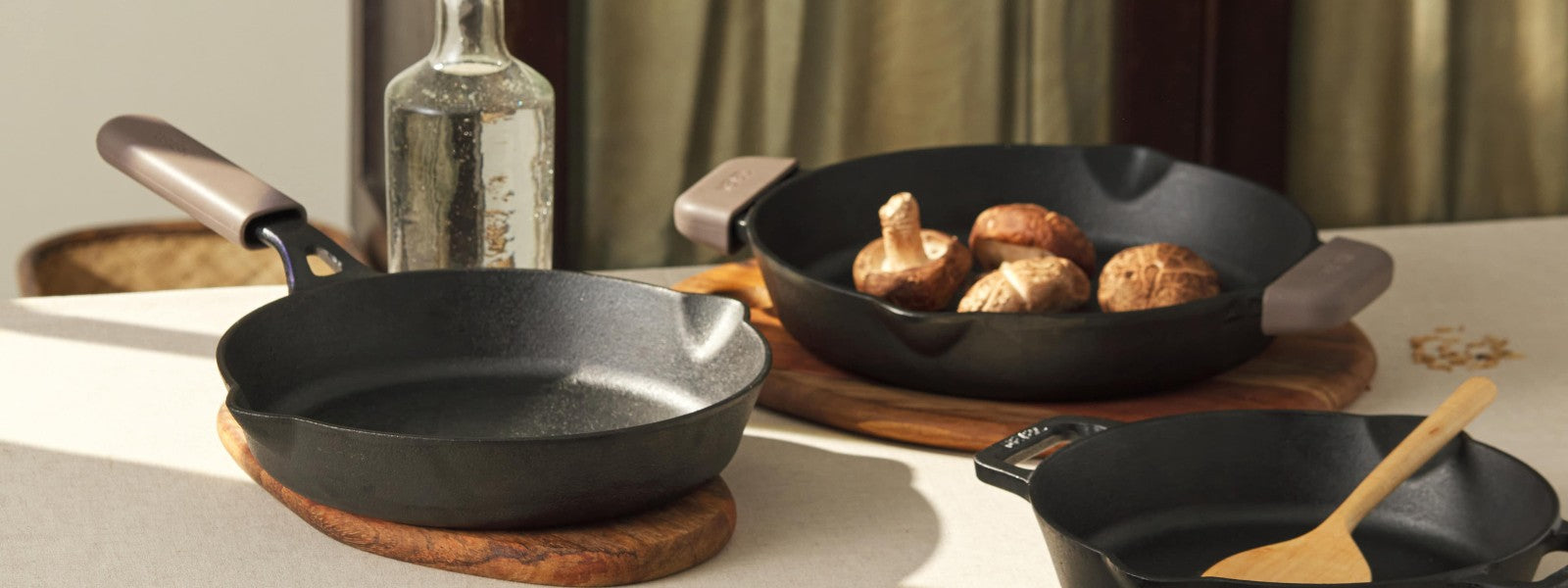
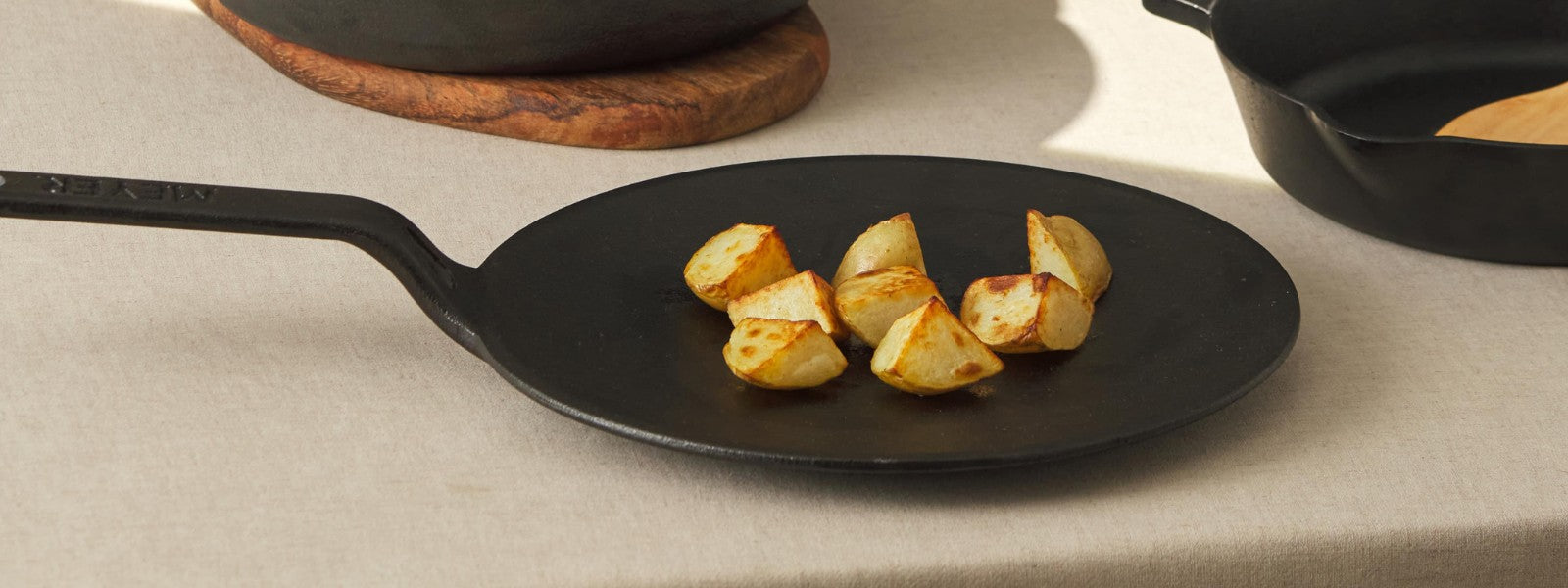
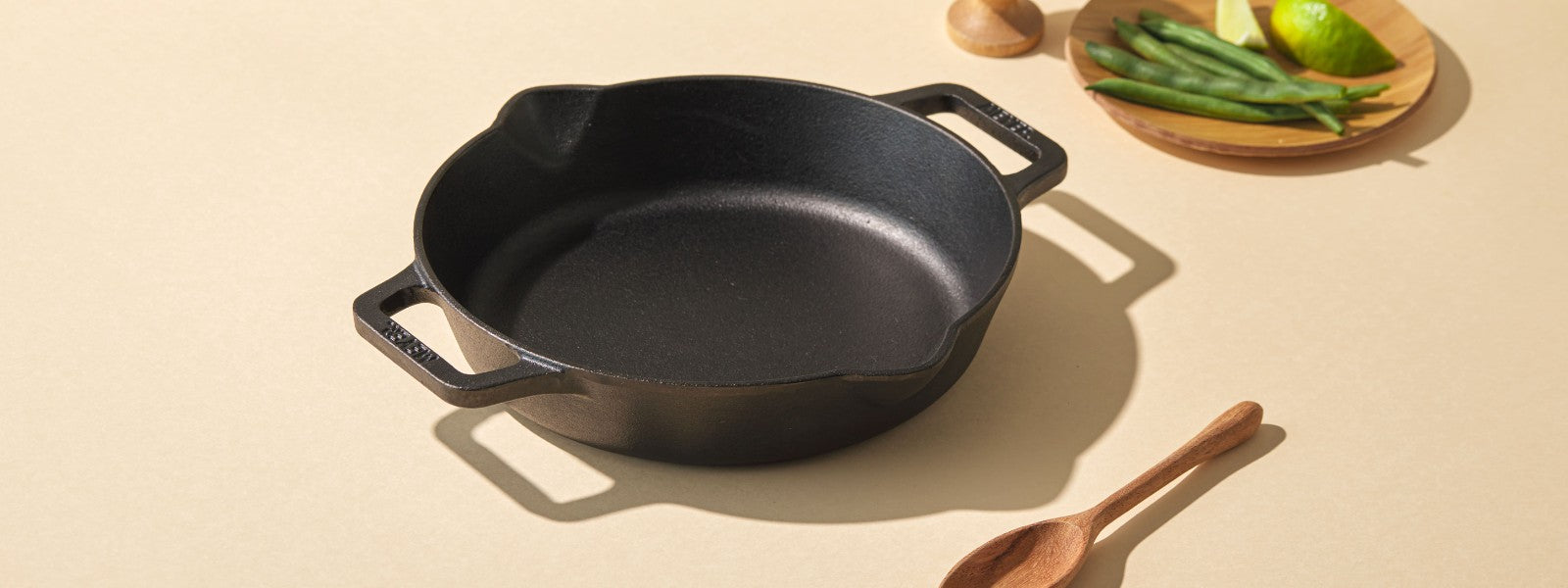
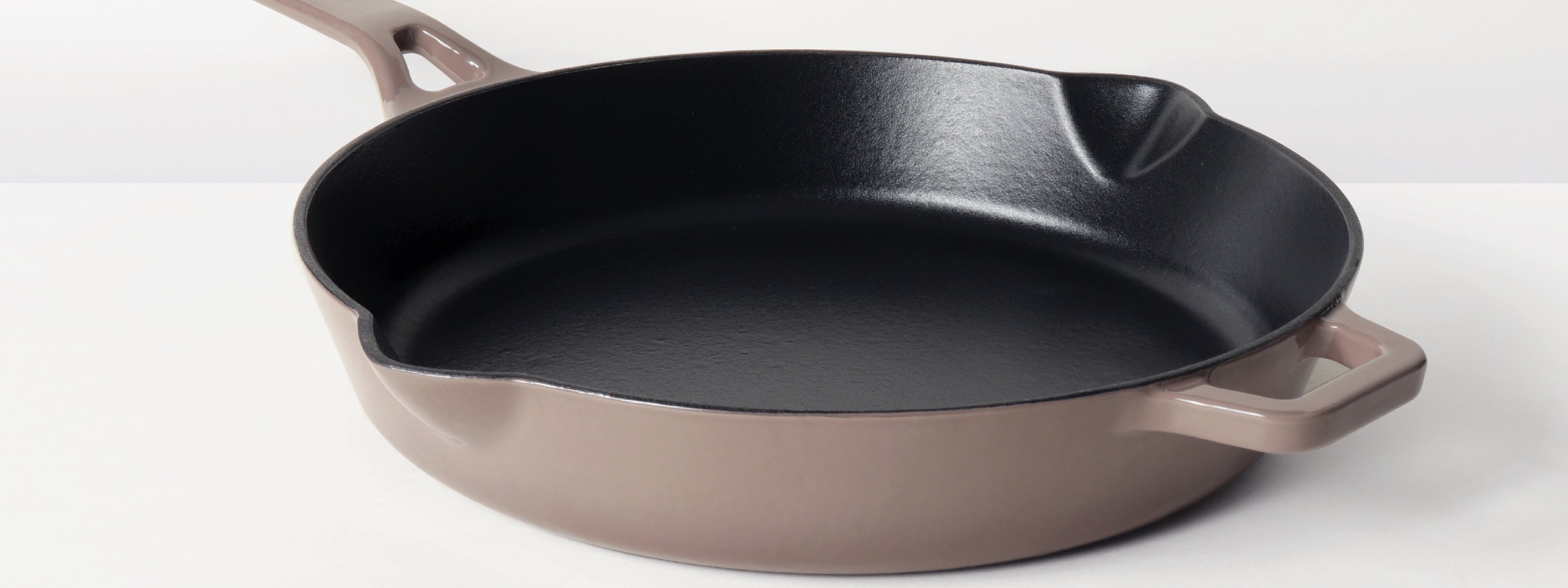
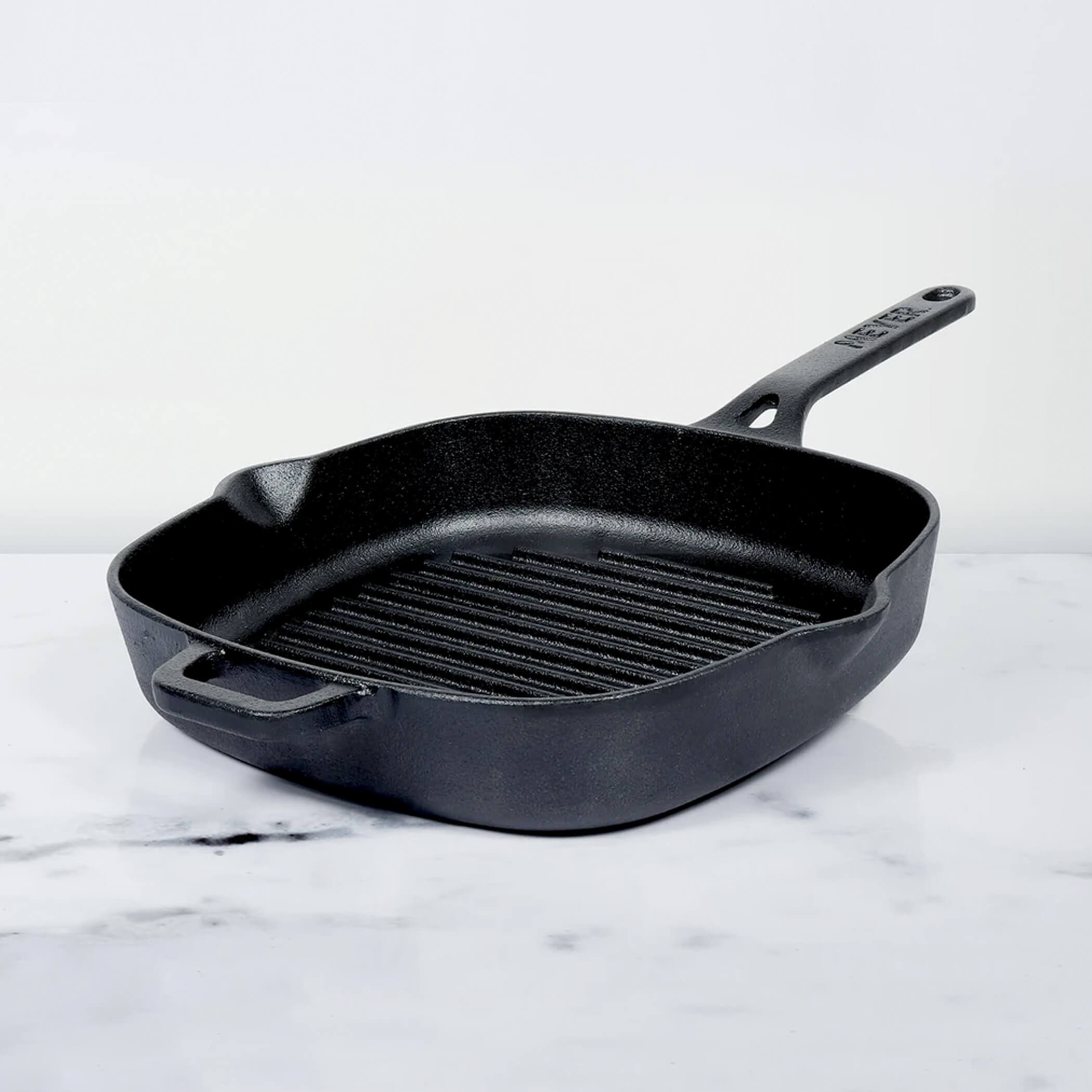
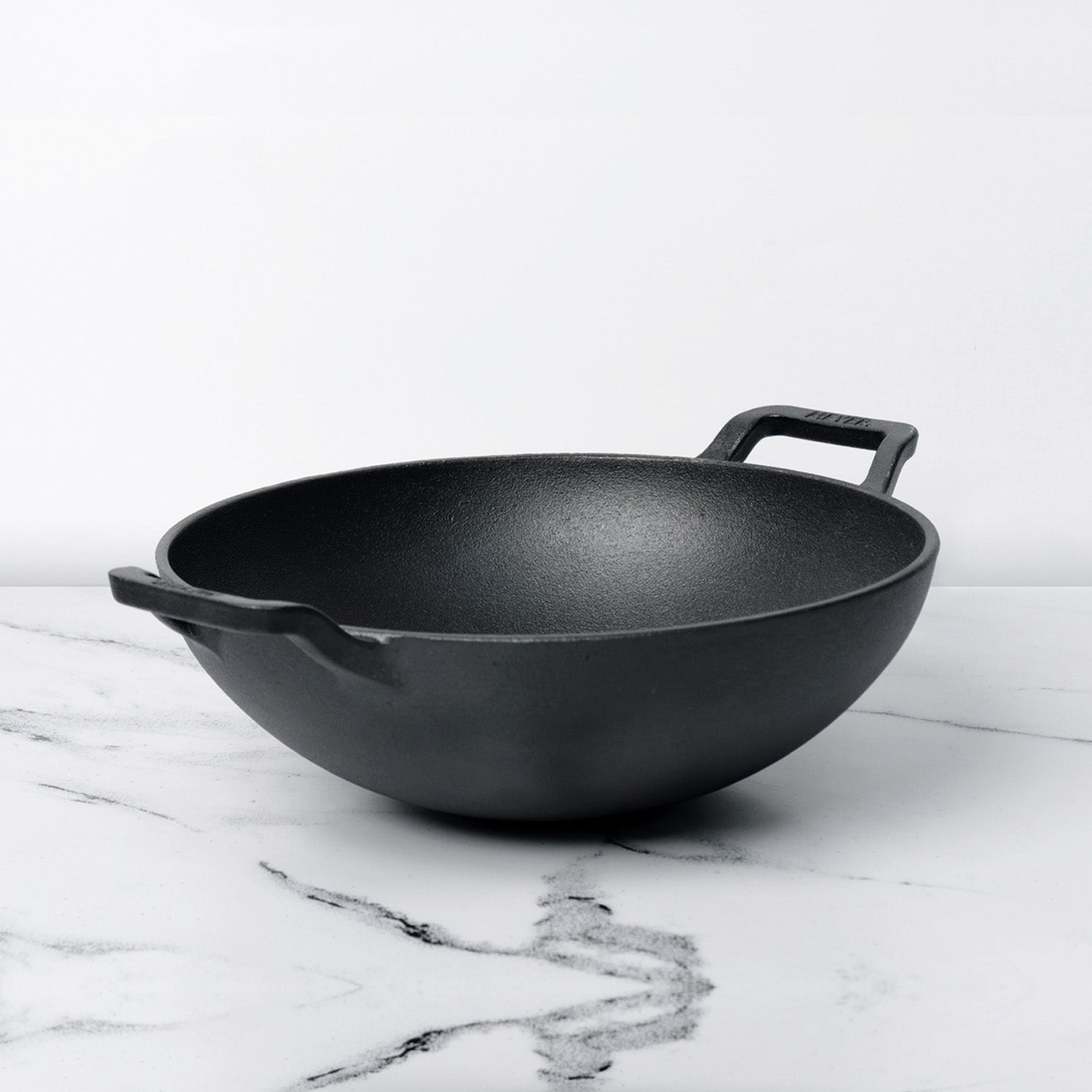




Leave a comment